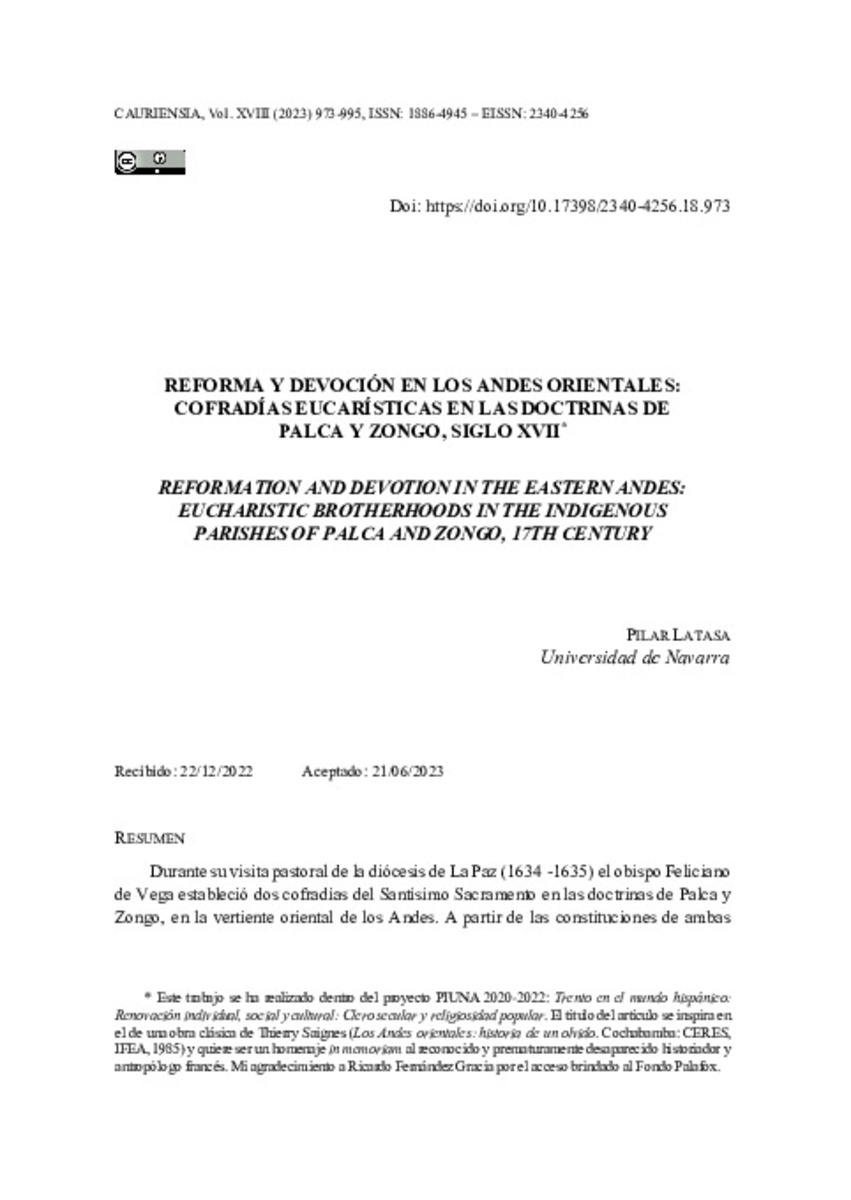Reforma y devoción en los Andes orientales: cofradías eucarísticas en las doctrinas de Palca y Zongo, siglo XVII
Other Titles:
Reformation and devotion in the Eastern Andes: eucharistic brotherhoods in the indigenous parishes of Palca and Zongo, 17th century
Publisher:
Instituto Teológico de Cáceres, Universidad de Extremadura, Universidad Francisco de Vitoria
Note:
Attribution 4.0 International (CC BY 4.0)
Citation:
Latasa, P. (Pilar). "Reforma y devoción en los Andes orientales: cofradías eucarísticas en las doctrinas de Palca y Zongo, siglo XVII". Caurensia. 18, 2023, 973 - 995
Statistics and impact
0 citas en

0 citas en

Items in Dadun are protected by copyright, with all rights reserved, unless otherwise indicated.












